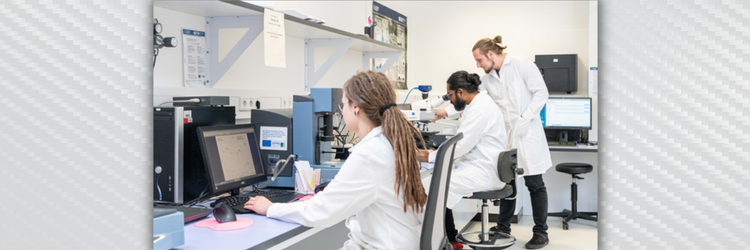Intelligent Materials for Robotics and Prostheses
Dresden-based researchers are developing a new class of materials whereby actuators and sensors are integrated directly into flexible fiber composites. The German Research Foundation (DFG) approved a 2nd phase of Research Training Group 2430, “Interactive Fiber-Elastomer Composites,” at TU Dresden in cooperation with the Leibniz Institute of Polymer Research Dresden. A total of 22 doctoral students will be supported in eleven interdisciplinary sub-projects over the next 4.5 years, in addition to material and project funding.
The second funding phase will focus on ionic and helical actuator-sensor concepts. Combined with intelligent design and control algorithms, self-sufficient, three-dimensionally deforming material systems will emerge. This will make the systems more robust, complex preforming patterns can be customized at the desired location – reversibly and contact-free.
Fiber composites are used increasingly in moving components due to stiffness and strengths and the possibility of tailoring these properties. By integrating adaptive functions into such materials, engineers eliminate the need for subsequent actuator placement, and the system’s robustness is significantly improved. Actuators and sensors based on textiles can be integrated directly into the fiber composites during manufacturing.
Interactive fiber-elastomer composites are predestined for many applications in mechanical and vehicle engineering, robotics, architecture, orthotics, and prosthetics: Examples include precise gripping and transport processes and components.

